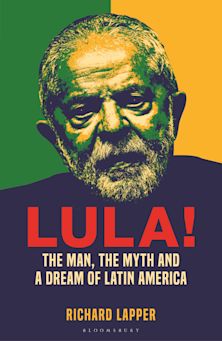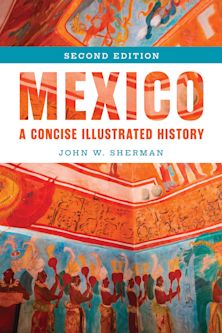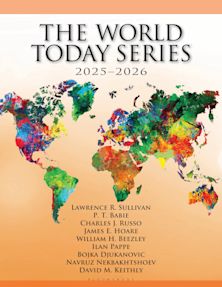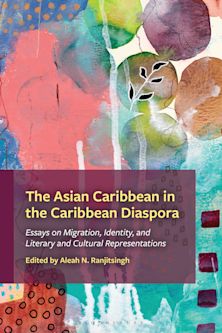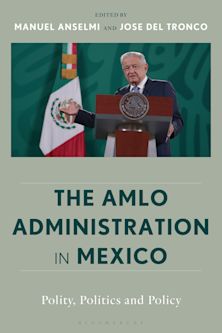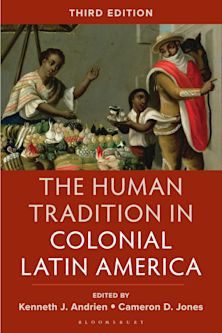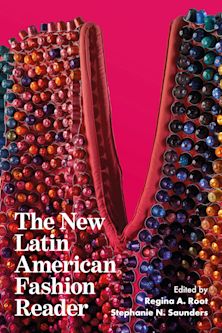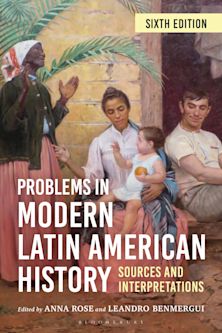- Home
- ACADEMIC
- History
- Latin American History
- The Human Tradition in Modern Brazil
For information on how we process your data, read our Privacy Policy
Thank you. We will email you when this book is available to order
Buy from Bloomsbury eTextBooks
You are now leaving the Bloomsbury Publishing website. Your eBook purchase will be with our partner https://www.vitalsource.com.
Your credit card statement will show this purchase originating from VitalSource Technologies. They will also provide any technical assistance you might require.
You must sign in to add this item to your wishlist. Please sign in or create an account
Description
The Human Tradition in Modern Brazil makes the last two centuries of Brazilian history come alive through the stories of mostly non-elite individuals. The pieces in this lively collection address how people experienced historical continuities and changes by exploring how they related to the rise of Brazilian national identity and the emergence of a national state. By including a broad array of historical actors from different regions, ethnicities, occupations, races, genders, and eras, The Human Tradition in Modern Brazil brings a human dimension to major economic, political, cultural, and social transitions. While many books on modern Brazilian history emphasize the growth of the state and the oscillations of nationalist sentiment by generalizing about groups of undifferentiated people such as slaves, industrial workers, army officers, Indians, and clerics, The Human Tradition in Modern Brazil brings a personal perspective to broad historical events and trends. Because these perspectives do not always fit with the generalizations made about the predominant attitudes, values, and beliefs of different groups, they bring a welcomed complexity to the understanding of Brazilian society and history. These original and gripping vignettes of life and society in Brazil are sure to engage readers with its colorful stories of Brazilians throughout the past.
Table of Contents
Part 2 The Independence and Early Imperial Generations (1800–1869)
Chapter 3 Daniel Gomes de Freitas: Liberal Conspiracy in Brazil's Early National Period
Chapter 4 Agostinho Jose Pereira: The Divine Master (O Divino Mestre)
Part 5 II The Generations of the Late Empire (1870–1889) and the Old Republic (1889–1930)
Chapter 6 Juca Rosa: Famous Spiritual Leader and Healer of Rio de Janeiro
Chapter 7 Jacobina Maurer: German-Brazilian Mystic
Chapter 8 Adolfo Ferreira Caminha: Ardent Republican and Naturalist Novelist
Chapter 9 Candido Mariano da Silva Rondon: One Man's Tireless Quest for the Brazilian Nation
Part 10 III The Populist-Era Generation (1930–1959)
Chapter 11 Geraldo Pereira: Samba Composer and Grifter
Chapter 12 Domingos da Guia: The Trajectory of a Mestizo Hero On and Off the Soccer Field
Chapter 13 Norma Fraga: Race, Class, Education, and the Estado Novo (1937–45)
Chapter 14 Vicente Racioppi: The Local Preservationist and the National State
Part 15 IV The Generations of Authoritarian Military Rule and Redemocratization: (1960 to the Twenty-First Century)
Chapter 16 Jofre CorrLa Netto: The Fidel Castro of Brazil
Chapter 17 Carolina Maria de Jesus: From Rag Picking to Best-Selling Author and Back Again
Chapter 18 Dom Helder Camara: The Father of the Brazilian Church of the Poor
Chapter 19 Madame Satp (Satan): The Black "Queen" of Brazilian Bohemia
Chapter 20 Mario Juruna: Brazil's First Indigenous Congressman
Product details
| Published | Oct 01 2003 |
|---|---|
| Format | Ebook (PDF) |
| Edition | 1st |
| Extent | 1 |
| ISBN | 9798216246114 |
| Imprint | Rowman & Littlefield |
| Series | The Human Tradition around the World series |
| Publisher | Bloomsbury Publishing |
About the contributors
Reviews
-
The Human Tradition in Modern Brazil continues the non-elite biography approach established in The Human Tradition in Modern Latin America (1997), edited by William H. Beezley and Judith Ewell, and The Human Tradition in Mexico (2003), edited by Jeffrey M. Pilcher. The non-elite biographies in the earlier volumes facilitate comparative analysis of Latin America, and the array of historical scholarship in Beattie's volume enable even more effective regional comparisons. The biographers' epistemological questions will resonate with Brazilian specialists who analyze how social and cultural context helps develop nationhood. By examining what nation meant to Brazilians of diverse social, regional, racial, and cultural descriptions, Beattie, and the biographers have enriched our understanding of Brazilian history and Brazilian national identity.
Carmen Nava, California State University, San Marcos, Luso-Brazilian Review
-
Enthusiastically recommended. General readers and undergraduates and above.
Choice Reviews
-
Vividly frames and describes experiences of Brazilians of all regions, races, and genders. . . . The book is a treasure and I strongly recommend it.
Elizabeth A. Kuznesof, University of Kansas
-
Accessible and engaging. The Human Tradition in Modern Brazil gives readers valuable insight into the workings of Brazilian national identity. Peter Beattie provides a thought-provoking interpretation that encourages students to explore biography as a very useful approach to social and cultural history. Together, the editor and authors have captured a sense of the riveting vitality of Brazilian society and culture in a way that will persuade students at all levels to explore intersections of gender, race, and class in historical context.
Carmen Nava, California State University, San Marcos
-
Beattie presents an insightful introduction and fifteen short biographies authored by Brazilian and U.S. historians.
Elizabeth Kuznesof, Luso-Brazilian Review












